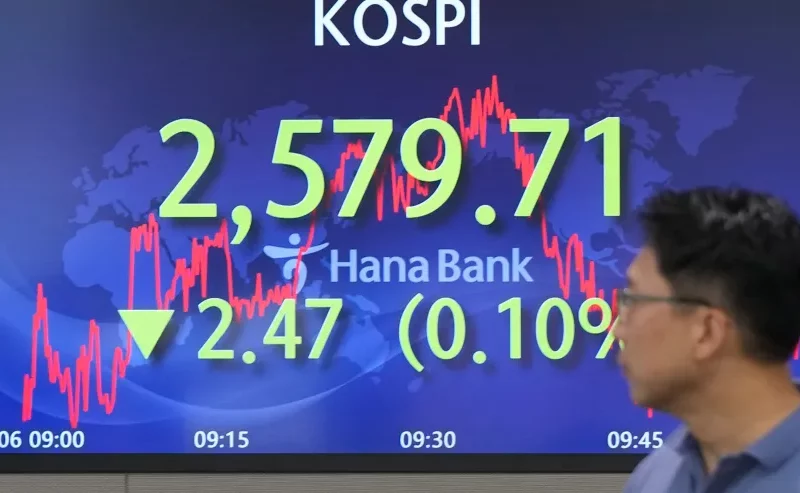Following a dip on Wall Street as traders returned from a long holiday weekend, shares were primarily weaker in Asia on Wednesday.
The majority of regional markets sank, but Japan’s Nikkei 225 index rose.
At a time when investors are hoping to see central banks refrain from raising interest rates, the price of crude oil increased, adding to inflationary pressures.
Stephen Innes of SPI Asset Management wrote in a column that “while oil bulls are dancing in the streets, the notable price uptick could prove challenging for central banks and financial markets, which were embellishing the current lower inflation groove.”
After the U.S. Labor Day vacation, there aren’t many economic releases for investors to look forward to this week, and the most recent round of corporate results is practically over.
The Nikkei 225 in Tokyo increased 0.7% to 33,262.48. The Kospi index fell 0.6% to 2,566.16 in Seoul.
Australia’s S&P/ASX 200 fell 0.6% to 7,273.30 as the government announced the economy expanded at a 2.3% annual rate in the previous quarter. It increased somewhat, by 0.2%, on a quarterly basis. The statistics matched predictions.
The Hang Seng index in Hong Kong decreased by 0.8% to 18,314.89 as the market eased back from gains brought on by recent stimulus measures for the struggling Chinese real estate market.
To 3,141.15, the Shanghai Composite index fell 0.4%.
The S&P 500 dropped 0.4% to 4,496.83 on Tuesday, while the Dow Jones Industrial Average dropped 0.6% to 34,641.97. The Russell 2000 fell 2.1% to 1,880.45, while the Nasdaq fell 0.1% to 14,020.95.
On the New York Stock Exchange, decliners outnumbered advancers by a ratio of more than three to one, indicating widespread selling.
The S&P 500 benchmark was most adversely affected by stock losses in the industrial, healthcare, and finance sectors. Merck & Co. declined 2.1%, Cintas decreased by 1.7%, and JPMorgan Chase closed down 1.1%.
The main area of optimism was in the technology equities. Microsoft increased 1.5%.
Energy stocks rose along with crude oil prices after Saudi Arabia and Russia said they will extend their voluntary production cut of 1 million barrels of oil a day through the end of the year. Chevron rose 1.3%.
Early Wednesday, U.S. benchmark crude oil was up 13 cents at $86.82 a barrel in electronic trading on the New York Mercantile Exchange. It gained $1.44 on Tuesday.
Brent crude, the standard for international trading, added 15 cents to $90.19 a barrel. It has risen to its highest level this year due to the production cuts.
On Wednesday, the Institute for Supply Management will issue its most recent study on the American services industry. The majority of Americans work in the services sector, which is a significant part of the economy. Its condition may offer additional information on how inflation is influencing consumer spending.
Additionally, information about the manufacturing industry and consumer credit will be provided to Wall Street. This week will see the release of the most recent quarterly financial reports from DocuSign, GameStop, Dave & Buster’s, and Kroger.
Investors were busy last week analyzing a large amount of economic data in an effort to have a better understanding of the economy. A lot of the data raised optimism that the Fed could scale down interest rate rises to combat long-term declining inflation.
Wall Street anticipates that the Fed will maintain its key interest rate at its upcoming meeting later in September, as it did at its previous meeting. Most investors wager that the central bank will continue that pause throughout the remainder of the year.
Since 2022, the central bank has rapidly increased its main interest rate, bringing it to its highest level since 2001. Reducing inflation to the Fed’s target rate of 2% has been the aim. While the economy is still expanding, several gauges of inflation have grown closer to that aim. This allayed worries that the rapid rate increases might send the economy into a downturn.
Although analysts are still concerned about the possibility of a recession, their worries have diminished as inflation declines and the economy continues to be robust.
In currency exchange, the dollar dropped from 147.73 Japanese yen late Tuesday to 147.48 yen. From $1.0721 to $1.0734, the euro increased.











